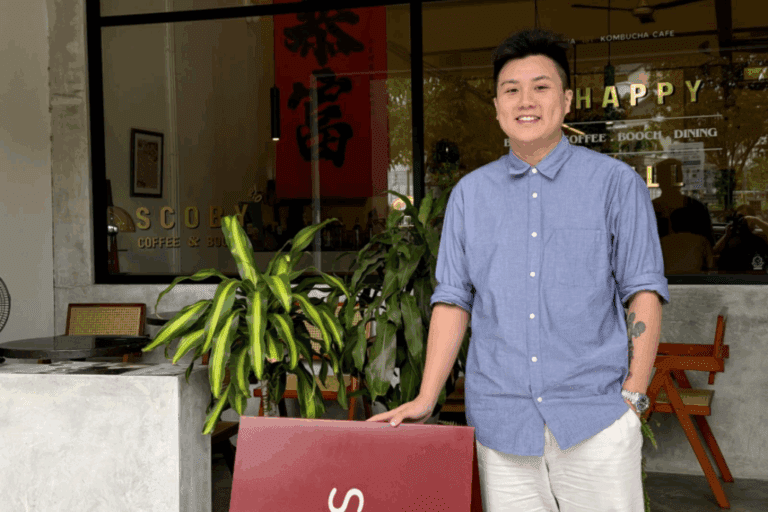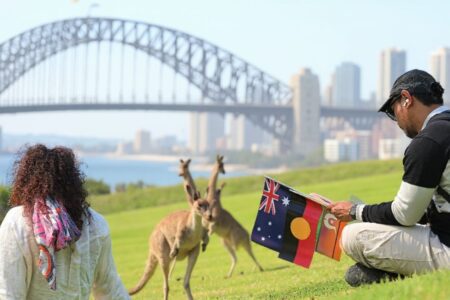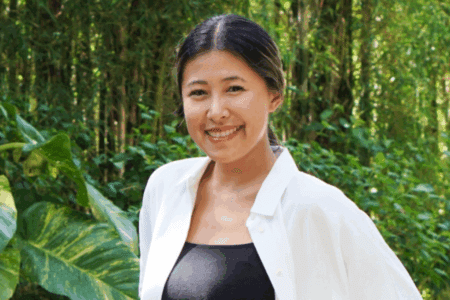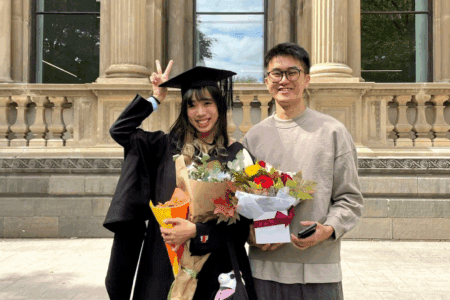
In more recent times, it seems like people increasingly believe that a university degree isn’t worth it anymore. Instead, going to work is seen as a better, cheaper, and faster way to making it big. The growing dismissal of a tertiary education could also be due to rising costs or more visibility on people who managed to achieve “success” without needing a certificate.
You might imagine that a finance and management graduate who runs not one but two cafes in Kuala Lumpur would feel that way, too. After all, some entrepreneurs believe that entrepreneurship is not something you learn by studying, but by doing.
However, Chester Yong, who founded Scoby Café at just 23 years old, strongly believes that the years spent while pursuing a university degree are irreplaceable.
Moving down under to complete his studies
Opting for a transfer programme, Yong spent first few years studying in Malaysia before moving to Wollongong, Australia, which is an hour south of Syndey.
He knew that the minimum wages in Australia are relatively high, as his brother had worked part-time while studying in Melbourne.
Although he only had a year left for his programme, he was granted a two-year visa, allowing him to easily stay in the country and gain some experience.
But even before he graduated, Yong was working part time. In fact, he had started working in Malaysia itself. After some event gigs, he began working in a café, which felt more stable. That’s when he got his first experience in F&B. Since he already had some barista skills, Yong easily got his first job at a cafe in Australia.
But he didn’t anticipate how different it would be working as a barista in Australia compared to Malaysia.
“In Australia, the coffee culture is very, very different. The people drinking coffee, the volume is very massive. It makes baristas a very prestigious job, compared to Malaysia,” he says. “Funny thing is that, I got my first job after my fifth day of landing in Wollongong. But I got fired after my first trial.”
Yong wasn’t fast enough for Australia’s cafe patrons. Unable to keep up with the pace, he ended up making a big mess.
“[But] it’s a very cool experience, to be honest,” he says.
Despite the rough start, Yong went on to gain plenty of experience working in Wollongong and beyond.
 Yong taught himself how to brew kombucha.
Yong taught himself how to brew kombucha.
Why would a university graduate choose to become a barista?
Originally, Yong had decided to delve into F&B work because of the low barriers to entry. But why did he continue working as a barista, even when he got his finance and management degree?
Well, aside from interest, the pay was actually really decent. He was making around AU$6,000 (around US$3,936.15 at the time of writing), which was an impressive amount especially for a 21-year-old.
And outside of monetary compensation, Yong found the hours very agreeable. He had been working for two cafes, with the hours for one being 5.30 a.m. to 1 p.m., and 8 a.m. to 4:30 p.m. for the other location. This allowed him a sufficient amount of time to rest and socialise.
Working in Australia as a barista actually allowed to repay his parents, who had funded his tuition fees and living expenses at university.
With that in mind, wouldn’t he feel like his education wasn’t actually necessary, outside of providing him with a visa?
 Yong has also opened another establishment called Surreal Cafe & Dining.
Yong has also opened another establishment called Surreal Cafe & Dining.
Is an Australian university degree still worth it?
Yong believes that the four years he spent at university in Malaysia and Australia were the best time of his life. But it’s not exactly because of what he learnt from classes.
“Some people believe that you can start making money straight after SPM,” he says, referring to Sijil Pelajaran Malaysia, a certificate of secondary school education in Malaysia. “But I feel like one thing that’s very precious is that the four years really built up my values before I really entered society.”
In short, he got to practise his own independence, while being surrounded by peers who were similar in age, in the same phase of life. Those who immediately start working might not be given the same grace to develop and grow.
That said, he did learn many relevant things from his classes. Since he didn’t pursue a specialised major like dentistry or law, a lot of the knowledge gained has been transferable and applicable to his entrepreneurial pursuit.
But if you spend all your time in university just attending lectures and completing assignments, maybe you might find studying abroad lacklustre. Studying abroad should not just about studying. It’s about immersing yourself in a new culture and allowing yourself to grow in other facets than just academic.
For Yong, he was able to grow a lot by working part-time. His bank account did too. Yong believes that extra bit of cash can help you cover expenses and make you feel better about enjoying your time there, too, especially if you come from a country that has a weaker currency.
“Of course, I have the privilege to go into university because my parents could afford to send me,” he adds. “If your parents can actually afford to send you overseas, just do it. Making money can come later. Just have fun first. Build up your experiences. You are only that young once.”










